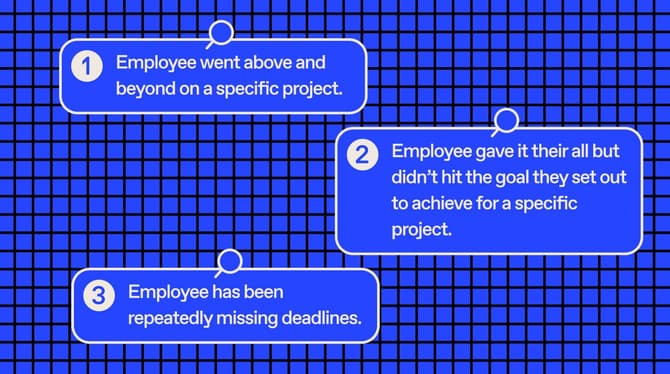When you go into work, how often are you being given advice or feedback from your management?
The tayloristic approach is to give employees the task and expect them to succeed. They do the same thing over and over and the paycheck is the reward. No questions asked.
However, we have advanced in workplaces since the early 1900's. Labor and productivity has increased, but unfortunately, happiness and communication between management, has been on the decline, till now.
HR managers are using advanced metrics and data to better their office. Employee engagement survey tools have been a new craze that people are using in order to receive employee feedback.
Employee feedback is becoming a major point of emphasis as of late, as managers are utilizing feedback to make workplaces better and recognizing their employees by giving them more than the metaphoric pat on the back.
The importance of employee feedback is undeniable.
The feedback they're obtaining from employees is coming in many forms, recognition platforms, employee surveys, and even employee engagement platforms. And the endgame is to give and get information from the employee and managers.
But before we can improve, we have to look at what's wrong. So here are some employee feedback statistics:
Assess your organization’s employee experience in minutes

What's in this article
- 1. Are Employees Feeling Appreciated?
- 2. Can Employee Feedback Lower Turnover?
- 3. The Last Thing You Want Is To Have Disengaged Employees
- 4. You Can Engage Employees By Giving Feedback
- 5. Lack Of Employee Feedback Leads To Disengagement
- 6. Highly Engaged Employees Receive Feedback
- 7. Majority Of Employees Want To Be Recognized
- 8. A Little More Than Half Of Managers Think They're Good
- 9. Only 2% Are Actively Engaged Post Feedback
- 10. Employee Recognition Needs To Be A Thing
- 11. Being Recognized Helps You Work Better
- Thoughts On Employee Feedback?

1. Are Employees Feeling Appreciated?
39% of employees report that they don’t feel appreciated at work.
As I've mentioned previously, employee recognition is a humongous deal! When you're employees are not feeling appreciated it's really hard for them to accept any form of feedback.
Think about when you work with a horrible boss. Do you really want to listen to anything that they may have to say as advice?
If you're a manager my advice would be to spend some more time with your employees and really getting to know them. Like that, you'll be able to get to know how to properly word any feedback that you may have for them. Remember, the best communicators are the ones that know their audience.
💡Find out how to deliver the perfect feedback with our best employee feedback examples for every situation.
2. Can Employee Feedback Lower Turnover?
14.9% lower turnover rates in companies that implement regular employee feedback.
It's quite simple, if there a regular amount of feedback, your company will be able to lower employee turnover.
This is one of those things that companies like Google and Zappos get right; they make sure to constantly communicate with their employees and create an atmosphere that is caring and caters to employees.
Keep it simple and as a manager give constant real-time feedback to your employees.
3. The Last Thing You Want Is To Have Disengaged Employees
2X as likely to be actively disengaged if employees are ignored by their manager.
Quite frankly, it's bad to have disengaged employees. They are wasting the company's time, along with their own. It's also estimated that employees who are not engaged cost the U.S economy about $500 billion per year.
When you lower the chances of disengaged employees, your office will be able to run at full force. Think about it like an athlete, if you have an injury, you're not going to be able to go full speed. So take all the preventative measures to (metaphorically) minimize the chance of injury.
4. You Can Engage Employees By Giving Feedback
30X more likely to have actively engaged workers when managers focus on employee strengths.
When your office open the communication floodgates between leadership and employees, it'll be able to thrive as a workplace.
When managers start looking at the strengths of their employees, they will be able to match up teams/groups better and allow projects to be completed faster. So give your employees constant feedback and get to know their strengths (and weaknesses), it'll make you a better leader.
5. Lack Of Employee Feedback Leads To Disengagement
4 out of 10 workers are actively disengaged when they get little or no feedback.
Being actively disengaged means that you really hate your job. When someone feels like this, they're looking for a way to get out of the company asap.
So when you're not giving employees feedback, whether it's positive or negative, they're becoming stagnant and they don't feel as if they belong. So start providing feedback in order to keep your employees.
6. Highly Engaged Employees Receive Feedback
43% of highly engaged employees receive feedback at least once a week compared to only 18% of employees with low engagement.
On the other end of the spectrum, if an employee is getting a lot of feedback they feel as if they're a large part of the company, thus, making feel engaged with the vision and values of the company.
As a manager take some time every week to hear your employees out and listen to what they have to say. It can really make all the difference.
7. Majority Of Employees Want To Be Recognized
65% of employees said they wanted more feedback.
Over half of your employees want to be led a little more.
Are you sending out the right vibes when you're out in the office? Are you really trying to make your company's employees be heard and satisfied? Try a bit harder to give your employees the feedback that they want ... and don't want. It'll make you a better leader, and them a better employee.
8. A Little More Than Half Of Managers Think They're Good
58% of managers think they give enough.
Think about that statistic, a little over half of managers think they're good at communicating and giving feedback. So how many of them are actually viewed as good by all their employees? Probably a lot less.
Either way, the number still has room for improvement. Managers need to focus on making their employees better, and the real way of doing so is giving them feedback.
9. Only 2% Are Actively Engaged Post Feedback
98% of employees will fail to be engaged when managers give little or no feedback to their workers.
This goes back to some of the numbers that have been posted here previously. But there is a bit of a chicken and egg theory to this one. Are the employee not feeling engaged because they're already disengaged before and they don't care anymore? Or is because from that moment on they stopped caring?
Regardless, managers need to be more careful when instituting employee feedback methods, as it may be detrimental to the employees growth.
10. Employee Recognition Needs To Be A Thing
69% of employees say they would work harder if they felt their efforts were better recognized.
We had written an extensive blog about the importance of employee recognition and even worked with some of the leaders in the industry.
That's right, it's important to have an initiative set up to begin recognizing employees. So start giving them feedback and mentioning some of their previous accomplishments in order to show that you appreciate them.
11. Being Recognized Helps You Work Better
78% of employees said being recognized motivates them in their job.
As we alluded to previously, when employees are getting feedback, it means that they're getting recognized . For better or worse, they are getting spoken to by a leader within their company.
Where we are coming at with this article is that it's extremely vital for your employees to have communication with their managers. It's going to lead to a lot of success in the future for the individual and the company.
This is something that can be changed immediately. As a manager, just go up to your employees and start letting them know of your thoughts and feelings toward their work. So be the change and your office's catalyst. Start working better.
Thoughts On Employee Feedback?
Do you have any tips and tricks that you may want to share with the audience to better employee feedback? Let us know your thoughts on twitter @Officevibe.
Equip HR and managers with tools to engage, recognize, and drive performance.




